Names & Job titles of team members:
Becky Thoseby, Head of Workplace Wellbeing Rowena Littlewood, Wellbeing and Mental Health Manager
Please provide an overview of the work your team delivers:
We set the wellbeing strategy for the Ministry of Justice, an organisation of over 90,000 employees. Our workforce is hugely diverse, comprising employees who work in courts, prisons, call centres and probation offices, as well as standard office environments.
At the Ministry of Justice, we take a person centred approach to wellbeing. A person centred approach essentially recognises each employee as an individual, with their own unique set of needs. It encourages individuals to take responsibility for their own wellbeing. It encourages line managers to support their team members based on a holistic picture of their needs. It encourages senior leaders to create a culture of wellbeing through their behaviour. And it encourages the organisation to create an inclusive environment where everyone can thrive.
Under a person centred approach, interventions are inclusion focused so that everyone in the organisation benefits regardless of their own package of needs. But they are also issue focused where data tells us there is a particular issue within the organisation.
So why do we take a person centred approach? Firstly, this enables the organisation to move forward from treating issues like mental health and musculoskeletal problems as single issues when often they are not. For example, 67% of employees with financial problems report at least one other health problem and one in five employees with a physical health condition will also have mental health issues. A person centred approach is inclusive by nature and it leaves nobody behind. It allows us to target the causes of poor wellbeing, while providing specific support on particular issues when needed. And it uses organisational resources more efficiently than an issue based approach.
A person centred approach can be described as aiming to “fix the organisation” rather than “fix the individual”. This means that at MoJ, wellbeing is less about encouraging individuals to make healthy lifestyle choices and more about creating an organisation that enables those choices and where everyone can thrive.
This translates into four current priorities:
1. Gather data to inform our strategic direction and tactical interventions
2. Explore what future interventions might have the greatest impact
3. Educate stakeholders and raise awareness of existing support
4. Provide targeted support to respond to environmental factors
Current work incudes:
• Working with a group of 12 prisons to provide wellbeing support to a project designed to bring a culture of rehabilitation to those establishments
• Upskilling managers to manage with wellbeing in mind
• Launching a new model of wellbeing delivery, providing an internal wellbeing consultancy to Board members
• A joint project with the Innovation Team aimed at helping people find time to think
• A project to test whether giving reward and recognition for positive wellbeing behaviours, encourages more of those behaviours
• Conducting a research study with an external partner to find out whether there are non pay interventions we can put in place to help staff with the cost of living
• Leading a programme of over 2600 mental health allies across MoJ, and 60 National Leads, that encourage conversations to break the stigma around mental ill health, provide support for staff and managers, provide better awareness of relevant policies, resources & toolkits and provide a confidential and non-judgemental ‘listening ear’ to colleagues who may be experiencing problems
We do all this with no budget and a team of only 2 people.
Please list any significant achievements made by your team since its inception:
In order to educate and raise awareness, we designed and delivered a Wellbeing Roadshow to
• promote available wellbeing initiatives for staff & line managers.
• outline the four key wellbeing priorities.
• raise awareness of the Inclusion Approach.
• connect wellbeing champions and the centre on a national scale.
• attract anecdotal feedback on wellbeing issues/support needed
So far over 2000 colleagues have attended a session either virtually or face to face. The session is also designed so that anyone who has received it can then go on to deliver it themselves, thereby increasing reach. Feedback states that over 90% of attendees have learned something new.
We created our Contact for Kindness scheme during lockdown in response to feedback from colleagues across the business who were experiencing feelings of loneliness and isolation. The scheme offers a platform to connect people who want to give support or be supported that have a common interest. There are now over 500 members and new topics of discussion are added regularly. We have since extended the offer and introduced Contact for Christmas for people who feel lonely or isolated on Christmas Day.
Living Libraries is a cross-network intersectional platform that provides colleagues the opportunity to share personal stories to help celebrate diversity and encourage understanding of our individual differences. The use of storytelling is intended to help understand ethics, values and cultural norms and differences of experience so they transcend to shared experiences. Storytellers are asked to record a 30 minute story which is then stored in the ‘library’ for those who wish to visit later and ‘borrow’ one.
We designed and launched a toolkit for line managers to have wellbeing conversations with their people. This helped to shift the perception of wellbeing from an individual looking after their health to a shared responsibility covering a range of factors, and encouraged an adult to adult conversation.
In collaboration with L&D teams across the organisation, we have designed different versions of a Wellbeing for Line Managers learning module to fit with business units’ existing offer and brand. It has helped to upskill managers, dispel fear, educate about what drives workplace wellbeing, and move the organisation towards our new Inclusion Strategy.
During lockdown, we launched a COVID-19 Keeping Well mini site on our intranet to broaden the focus from health to wider wellbeing, and provide guidance and information on practical issues that people were facing. Worked collaboratively with a colleague from Employee Experience team to achieve this, we collated content from a wide range of stakeholders and subject matter experts. Content was targeted so that not all was relevant for everyone but so that there was something there for everyone.
In response to the cost of living crisis, we partnered with the Charity for Civil Servants to launch a financial wellbeing hub on our intranet. It is a one stop shop for all staff who want to improve their financial wellbeing and provides a huge range of information and resources, from template letters to calculators to learning resources and much more.
To meet the needs of colleagues who wanted to learn about wellbeing but didn’t have time to engage in formal learning, we created a number of 2 or 3 minute explainer videos to cover the basics of wellbeing. Subjects include the person centred approach, drivers of wellbeing, responsibilities of the line manager and how to have a good wellbeing conversation. They are hosted on YouTube so staff who don’t routinely access a device as part of their job, can still access them via a personal device.
What impact has your team had on the organisation?
Impact in the workplace wellbeing space is notoriously difficult to manage. We do this mainly through our annual wellbeing survey, which this year told us that:
• 72% of our staff think their manager has the capability to support them with their wellbeing
• 77% of our staff feel their manager is considerate of their life outside work
• 89% of our staff feel trusted by their manager to work effectively regardless of their location
• 79% of our staff feel they are treated with respect by the people they work with
• 72% of our staff get a sense of personal accomplishment from their work
• 89% of our staff are aware of the wellbeing support available to them
In addition, we frequently receive anecdotal feedback that the way wellbeing is spoken about in the organisation has changed since we have been working in this space. People are no longer thinking about wellbeing as an add on, something that gets done on top of or instead of the day job, but as a thread that runs through everything. People are also demonstrating a greater understanding of the factors that really drive workplace wellbeing such as autonomy and workload, and seeking to address these rather than putting in place gimmicks such as lunchtime yoga.
Our wellbeing approach is often used as an example of best practice within the Civil Service, particularly our financial wellbeing hub. Our Head of Workplace Wellbeing is also frequently invited to speak at events and webinars to share best practice around our approach. Both of these factors have served to enhance MoJ’s reputation as an employer of choice for wellbeing.
Please provide an endorsing statement from someone who can support this nomination (Max. 500 words) Chris Jennings, Executive Director, HMPPS Wales As the Senior Champion for Wellbeing in HM Prison and Probation Service I work very closely with the Ministry of Justice Wellbeing Team. Their support and expertise have been invaluable. With their help we have been able to bring a real focus to improving the wellbeing of our staff. They understand the nature and challenges of our work and their person-centred approach means that interventions are naturally tailored to address the needs of those working in prisons and probation offices.
The team always seek to make raising awareness of wellbeing as accessible as possible. I feel this is vital to HMPPS staff in particular, as roles are busy and not everyone has daily access to a computer in work. The short videos they have produced are an innovative solution to explaining the basics of wellbeing, and introducing the person-centred approach and the line manager’s role in wellbeing, that are very clear and can be accessed whenever staff need them.
The team have been keen to impress the importance of our relationships with our line managers, and the line manager’s role in ensuring their staff feel safe and empowered in work, as key to workplace wellbeing. To support this, they’ve designed the line-manager toolkit to create opportunities for grown-up conversations that share the responsibility for improving wellbeing at work beyond just the individual’s mental and physical health. This is a valuable resource and sets staff to have successful wellbeing conversations with their teams.
However, what impresses me most about Becky and Rowena is how they are not afraid to hold senior leaders to account for making real, material changes to the organisation and culture. They
speak with conviction and clarity about the interventions that will get to the core of improving people’s working lives. They challenge us to not to settle for just gimmicky one-off activities that are so easy to revert to when the problem seems overwhelming. Instead, through the person-centred approach, they encourage us to think about our own behaviour and how we set the tone and practices in our working environment.
Senior Leaders in my organisation are now beginning to see wellbeing in a different light. I am certain this couldn’t have happened without the impressive work of this small, but dynamic and determined, team



